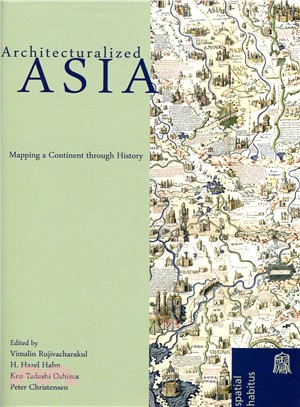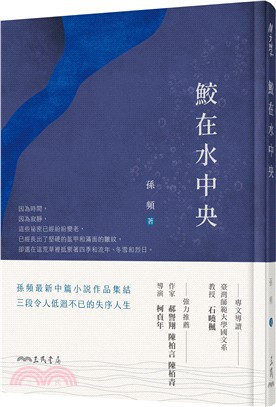Architecturalized Asia:Mapping a Continent through History
商品資訊
ISBN13:9789888208050
替代書名:建築亞洲:從歷史建構陸洲
出版社:香港大學出版社
作者:Vimalin Rujivacharakul; H. Hazel Hahn; Ken Tadashi Oshima and Peter Christensen
出版日:2013/11/01
裝訂/頁數:精裝/301頁
規格:17.8cm*25.4cm (高/寬)
商品簡介
作者簡介
名人/編輯推薦
相關商品
商品簡介
How did terms like "Asia," "Eurasia," "Indochina," "Pacific Rim" or "Australasia" originate and evolve, and what are their connections to the built environment? In addressing this question, Architecturalized Asia bridges the fields of history and architecture by taking "Asia" as a discursive structure and cultural construct, whose spatial and ideological formation can be examined through the lenses of cartography, built environments, and visual narratives. The first section, on the study of architecture in Asia from the medieval through early modern periods, examines icons and symbols in maps as well as textual descriptions produced in Europe and Asia. The second section explores the establishment of the field of Asian architecture as well as the political and cultural imagining of "Asia" during the long nineteenth century, when "Asia" and its regions were redefined in the making of modern world maps mainly produced in Europe. The third section examines tangible structures produced in the twentieth century as legible documents of these notional constructions of Asia. In exploring the ways in which "Asia" has been drawn and framed both within and without the continent, this volume offers cutting-edge scholarship on architectural history, world history and the history of empires.
Written by architectural historians and historians specializing in Asia and European empires, this unique volume addresses the connection between Asia and the world through the lenses of built environments and spatial conceptualizations. Architecturalized Asia will appeal to readers who are interested in Asian architecture, world architecture, Asian history, history of empires, and world history.
Written by architectural historians and historians specializing in Asia and European empires, this unique volume addresses the connection between Asia and the world through the lenses of built environments and spatial conceptualizations. Architecturalized Asia will appeal to readers who are interested in Asian architecture, world architecture, Asian history, history of empires, and world history.
作者簡介
Vimalin Rujivacharakul is associate professor of history of art and architecture at the University of Delaware.
H. Hazel Hahn is associate professor of history at Seattle University.
Ken Tadashi Oshima is associate professor of architecture at the University of Washington.
Peter Christensen is research associate at Technische Universität München (TU Munich).
H. Hazel Hahn is associate professor of history at Seattle University.
Ken Tadashi Oshima is associate professor of architecture at the University of Washington.
Peter Christensen is research associate at Technische Universität München (TU Munich).
名人/編輯推薦
"Architecturalized Asia will be a revelation to anyone with an interest in global architecture. Based on sharp critiques of the concept of Asia and the sharp distinctions between Eastern and Western culture that have gripped architectural history for so long, the essayists here dissect our understanding of some of the canonical monuments of architecture on the Asian continent. Architecturalized Asia is a major contribution to the field."
—Dell Upton, University of California, Los Angeles
"Extending the critique of metageography into new scholarly terrain, these essays probe the construction of Asia and its sub-regions as categories of architectural taxonomy. In the process, they illuminate the surprising extent to which building types have been used as markers of regional civilization in European cartography and geographical writing. A provocative contribution."
—Kären Wigen, co-author of The Myth of Continents: A Critique of Metageography
"In late fifteenth-century Europe maps were still being printed in which the three known continents—Europe, Asia and Africa—were allotted to the sons of Noah. Paradise was farthest to the east, and the peripheries of the world were peopled by fantasies from the ancient eastward expeditions of Alexander the Great. As the cartographic description of the world unfolded, new practices of domination and exploitation arose, but so did new adaptations and accommodations, and new forms of cultural awareness. Histories of the forms and spaces of architecture provide unique access to these myriad interactions, and anyone interested in these momentous and ongoing global transformations should read this fine book."
—David Summers, University of Virginia
—Dell Upton, University of California, Los Angeles
"Extending the critique of metageography into new scholarly terrain, these essays probe the construction of Asia and its sub-regions as categories of architectural taxonomy. In the process, they illuminate the surprising extent to which building types have been used as markers of regional civilization in European cartography and geographical writing. A provocative contribution."
—Kären Wigen, co-author of The Myth of Continents: A Critique of Metageography
"In late fifteenth-century Europe maps were still being printed in which the three known continents—Europe, Asia and Africa—were allotted to the sons of Noah. Paradise was farthest to the east, and the peripheries of the world were peopled by fantasies from the ancient eastward expeditions of Alexander the Great. As the cartographic description of the world unfolded, new practices of domination and exploitation arose, but so did new adaptations and accommodations, and new forms of cultural awareness. Histories of the forms and spaces of architecture provide unique access to these myriad interactions, and anyone interested in these momentous and ongoing global transformations should read this fine book."
—David Summers, University of Virginia
主題書展
更多
主題書展
更多書展今日66折
您曾經瀏覽過的商品
購物須知
為了保護您的權益,「三民網路書店」提供會員七日商品鑑賞期(收到商品為起始日)。
若要辦理退貨,請在商品鑑賞期內寄回,且商品必須是全新狀態與完整包裝(商品、附件、發票、隨貨贈品等)否則恕不接受退貨。
























